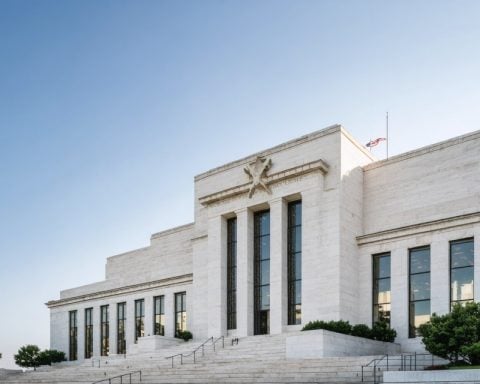The landscape of immigration sentiment in America is experiencing significant changes, as recent polls reveal an overwhelming preference for the deportation of undocumented immigrants. According to insights from CNN poll analyst Harry Enten, several surveys conducted over the past month demonstrate a remarkable consensus among Americans on this contentious issue.
In a recent New York Times poll, a striking 55% of respondents expressed support for the deportation of all illegal immigrants. Similarly, the Marquette poll reported an even higher number, with 64% backing deportation. Other surveys, including those from CBS News and ABC News, also reflected strong support, with figures at 57% and 56%, respectively. These statistics suggest a uniformity across different pollsters regarding public sentiment.
Enten highlighted a notable trend: support for deportation has surged 14 percentage points in the ABC News poll since 2015, rising from 42% to 56% in 2024. This trend underscores a broader shift in attitudes towards immigration as the nation grapples with these challenges. Furthermore, a Gallup poll indicated that the belief in reducing all immigration levels has climbed from 36% in 2016 to an astounding 55% in 2024, marking the highest levels since the aftermath of 9/11.
The data indicates a transformative moment for U.S. immigration policy, reflecting a growing desire among the public to address illegal immigration more decisively.
Shifting Sentiment and Its Broader Implications
The prevailing sentiment toward immigration, particularly the calls for the deportation of undocumented individuals, reveals a deeper societal transformation that resonates beyond immediate policy implications. As support for deportation swells, it raises critical questions about national identity and societal cohesion. The idea that nearly two-thirds of Americans favor punitive measures against undocumented immigrants suggests a deepening cultural divide. Issues surrounding immigration often serve as a litmus test for broader anxieties about economic stability and racial dynamics within a society increasingly defined by demographic shifts.
These sentiments can significantly impact the global economy. As businesses increasingly rely on immigrant labor across sectors, a crackdown on immigration may lead to labor shortages, hindering economic growth. The U.S. labor market has historically thrived on the contributions of undocumented workers, who often fill critical roles in agriculture, construction, and service industries. Alienating this workforce could exacerbate existing supply chain issues and inflate operational costs for businesses.
Moreover, the political landscape could be reshaped by these sentiments. A powerful push for harsher immigration policies may embolden movements that prioritize isolationism and nationalism, potentially leading to a ripple effect in international relations. Such a trajectory could strain diplomatic ties, particularly with countries that send a significant number of migrants to the U.S., thereby altering longstanding agreements and partnerships.
In terms of environmental effects, restrictive immigration policies could also hinder collaborative efforts on climate action. Migrants often bring diverse knowledge and adaptive strategies to climate resilience, especially in vulnerable communities. The marginalization of these groups could thus stall progressive environmental initiatives that are increasingly reliant on global cooperation and multicultural input.
Given these considerations, the renewed appetite for aggressive deportation policies has profound implications that stretch far beyond the immigration debate itself, signaling a pivotal moment in America’s ongoing narrative about who belongs in society and how that belonging shapes its future.
Shifting Tides: The New Era of Immigration Sentiment in America
The immigration landscape in the United States is undergoing remarkable changes, as recent polling data suggests a pronounced shift in public sentiment regarding undocumented immigrants. Various surveys, including those from reputable sources, reveal a strong consensus among Americans favoring stricter immigration policies, particularly the deportation of undocumented individuals.
Overview of Public Sentiment
Recent polling, including a New York Times survey, shows that 55% of respondents support the deportation of all illegal immigrants. This sentiment is echoed by the Marquette poll, which recorded an even higher percentage of 64%. CBS News and ABC News surveys reflect similar trends, with 57% and 56% support, respectively. Such uniformity across diverse pollsters indicates a significant consensus on this contentious issue.
Historical Context and Trends
The evolution of public opinion on immigration can be traced through various polls over the years. Interestingly, a notable trend identified by CNN poll analyst Harry Enten shows that support for deportation has increased by 14 percentage points in the ABC News poll alone since 2015. This rise highlights a dynamic shift in attitudes, with public support climbing from 42% in 2015 to 56% in 2024.
Moreover, according to a Gallup poll, the belief in reducing all immigration levels has risen dramatically from 36% in 2016 to 55% in 2024—the highest recorded levels since the post-9/11 era. These statistics underscore an evolving national dialogue about immigration policy and the pressures surrounding it.
Implications for U.S. Immigration Policy
The current public sentiment reflects a transformative moment for U.S. immigration policy. As Americans increasingly call for more definitive action against illegal immigration, policymakers may need to respond to these changing views. This surge in support for stricter immigration policies could potentially shape legislative agendas and influence future elections.
Possible Outcomes
1. Policy Changes: Increased support for deportation may prompt lawmakers to re-evaluate and possibly restructure immigration policies, focusing on stricter enforcement measures.
2. Political Dynamics: The shifting sentiment could reshape political alignments, with candidates considering these views in their platforms leading up to elections.
3. Public Discourse: The growing concern over immigration may lead to intensified discussions within communities, reflecting diverse perspectives and potential debates on community impact and social responsibility.
Conclusion
The changing landscape of immigration sentiment in America suggests an increasing desire for decisive action regarding undocumented immigrants. As public opinion shifts, it will be crucial for both citizens and lawmakers to engage constructively in dialogues surrounding immigration to address the complexities of this issue effectively.
For more insights into current immigration policies and public sentiment, you can explore the extensive coverage on CNN and The New York Times.



















